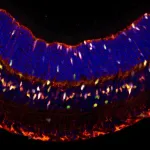(Press-News.org) ROCKVILLE, Md. – March 31, 2025 – The Association for Molecular Pathology, the premier global molecular diagnostic professional society, and pathologist Michael Laposata, M.D., Ph.D., today announced a favorable ruling in their lawsuit against the U.S. Food and Drug Administration over the regulation of laboratory-developed test procedures. The ruling by Judge Sean D. Jordan of the U.S. District Court for the Eastern District of Texas granted AMP’s motion for summary judgment and vacated the FDA rule that would have regulated LDTs as medical devices under the Federal Food, Drug and Cosmetic Act.
AMP President Jane S. Gibson, Ph.D., is a Pegasus-awarded professor of pathology, chair of the Department of Clinical Sciences and director of molecular diagnostics at the University of Central Florida College of Medicine. “AMP is extremely pleased with the court’s clear and decisive ruling in our favor, and we hope this will finally end the FDA’s attempts to exert an unwarranted overreach of authority of LDTs,” said Gibson. “This judgment is a significant victory for our members and for patients across the country. The decision to vacate the FDA rule will avoid adding billions of dollars to healthcare costs and protect access to high-quality care for hundreds of millions of Americans.”
For decades, LDTs have led to significant clinical advancements and diagnostic breakthroughs in rare and infectious diseases, human genomics, oncology biomarker testing and more. They are often created in response to recent medical advances and unmet clinical needs, and have been instrumental for early and precise diagnosis, disease monitoring and treatment guidance. LDTs are designed, developed, validated, performed and interpreted by highly trained medical and scientific experts in regulated clinical laboratories. Importantly, LDTs are not manufactured, packaged or commercially distributed like medical devices.
Eric Konnick, M.D., is AMP’s Professional Relations Committee chair and an associate professor and the associate director of the Genetics and Solid Tumor Laboratory at the University of Washington Department of Laboratory Medicine and Pathology. “The FDA LDT rule would have created an undue burden on laboratories tasked with keeping patients healthy and safe, and would have led to extensive additional requirements in addition to the existing CLIA regulations,” said Konnick. “AMP members continue to work with key stakeholders to develop a more effective and efficient legislative framework that clarifies oversight, enhances transparency, preserves innovation, avoids escalating costs and ensures widespread patient access for these essential medical services.”
AMP has long maintained that the best approach to ensuring the continued development and deployment of accurate and reliable LDT procedures —and the correct utilization, precise interpretation and proper application of molecular test results — is through clarifying the current CLIA regulations. AMP’s legislative proposal builds on the existing oversight framework and offers test quality enhancements where appropriate.
To read the full ruling, please visit the AMP website.
###
ABOUT AMP
The Association for Molecular Pathology was founded in 1995 to provide structure and leadership to the emerging field of molecular diagnostics. AMP’s more than 3,100 members practice various disciplines of molecular diagnostics, including bioinformatics, infectious diseases, inherited conditions and oncology. Our members are pathologists, physicians, clinical laboratory directors, basic and translational scientists, technologists and trainees who practice in a variety of settings, including academic and community medical centers, government and industry. Through the efforts of its board of directors, committees, working groups and members, AMP is the primary resource for expertise, education and collaboration in one of the fastest-growing fields in healthcare. AMP members influence policy and regulation on the national and international levels, ultimately serving to advance innovation in the field and protect patient access to high-quality, appropriate testing. For more information, visit www.amp.org and follow AMP on X: @AMPath.
END
Association for Molecular Pathology celebrates U.S. District Court’s decision to vacate FDA rule on laboratory-developed test procedure regulation
Professional society will continue to work with stakeholders to develop a more effective and efficient legislative regulatory framework that ensures high-quality patient care while fostering rapid innovation and the promise of new diagnostic technologies
2025-03-31
ELSE PRESS RELEASES FROM THIS DATE:
Dr. Christopher Kramer is new American College of Cardiology President
2025-03-31
Christopher M. Kramer, MD, FACC, today assumed the role of president of the American College of Cardiology, an almost 60,000-member global cardiovascular organization working to transform cardiovascular care and improve heart health for all.
“I see significant challenges and opportunities for the field of cardiology in the coming years, including workforce issues, health equity, diversity and inclusion, and AI-driven solutions, that need to be addressed to achieve ACC’s mission of transforming cardiovascular care for all,” ...
Dr. David Winchester is new Chair of ACC Board of Governors
2025-03-31
Effective today, David E. Winchester, MD, MS, FACC, will serve as chair of the American College of Cardiology Board of Governors (BOG) and secretary of the Board of Trustees. His term will run one year from 2025-2026.
Winchester will lead governors from chapters representing all 50 states, the District of Columbia, Puerto Rico, Canada, Mexico and representatives from the U.S. health services. The BOG serves as the grassroots governing body of the ACC, a leading cardiovascular organization representing over 56,000 cardiovascular care team members around the world.
“Being Chair of the Board ...
4:3 Intermittent fasting shows modestly greater weight loss than daily caloric restriction
2025-03-31
Embargoed for release until 5:00 p.m. ET on Monday 31 March 2025
Follow @Annalsofim on X, Facebook, Instagram, threads, and Linkedin
Below please find summaries of new articles that will be published in the next issue of Annals of Internal Medicine. The summaries are not intended to substitute for the full articles as a source of information. This information is under strict embargo and by taking it into possession, media representatives are committing to the terms of the embargo not only on their own behalf, but ...
Patient navigators improve colonoscopy rates after abnormal stool tests, study shows
2025-03-31
TUCSON, Arizona — A University of Arizona Health Sciences-led study found that patients are more likely to get colonoscopies following abnormal stool test results if patient navigators assist them through the process.
The paper, published in the Annals of Internal Medicine, showed that 55% of patients who were assigned to a patient navigator received follow-up colonoscopies within a year compared with 42.5% of patients who received usual care without a navigator.
“It is important for patients with abnormal stool test results to get a colonoscopy as soon as possible to prevent an increased risk of colorectal cancer and later-stage cancer detection,” ...
New warnings of a ‘Butterfly Effect’ — in reverse
2025-03-31
Contact: Bess Connolly, 203-432-1324 or elizabeth.connolly@yale.edu
New Haven, Conn. — A Yale-led study warns that global climate change may have a devastating effect on butterflies, turning their species-rich, mountain habitats from refuges into traps.
Think of it as the “butterfly effect” — the idea that something as small as the flapping of a butterfly’s wings can eventually lead to a major event such as a hurricane — in reverse.
The new study, published in the journal Nature Ecology and Evolution, ...
Scientists solve “cocktail party” mystery of bat echolocation
2025-03-31
Aya Goldshtein, Omer Mazar, and Yossi Yovel have spent many evenings standing outside bat caves. Even so, seeing thousands of bats erupting out of a cave and flapping into the night, sometimes in densities so high that they appear liquid, astounds the scientists every time. But until recently, the bat biologists were even more baffled by what they didn’t see. “The bats don’t run into each other,” says Goldshtein from the Max Planck Institute of Animal Behavior, “even in colonies of ...
USC Stem Cell mouse study identifies shared genes involved in hearing and vision regeneration
2025-03-31
The same genes could hold the key to regenerating cells in the ear and eye, according to a new mouse study from the USC Stem Cell laboratory of Ksenia Gnedeva, PhD, published in the Proceedings of the National Academy of Sciences (PNAS).
“The proliferation of progenitor cells in response to injury is a crucial step in the regeneration of sensory receptors, but this process is blocked in the mammalian inner ear and retina. By understanding the genes that enforce this block, we can advance efforts to restore hearing and vision in patients,” said Gnedeva, an assistant professor in the USC Tina and Rick Caruso Department of Otolaryngology ...
New study challenges the story of humanity’s shift from prehistoric hunting to farming
2025-03-31
A new study published in Proceedings of the National Academy of Sciences (PNAS) has turned traditional thinking on its head by highlighting the role of human interactions during the shift from hunting and gathering to farming - one of the biggest changes in human history - rather than earlier ideas that focused on environmental factors.
The transition from a hunter-gatherer foraging lifestyle, which humanity had followed for hundreds of thousands of years, to a settled farming one about 12,000 years ago has been widely discussed in popular books like Sapiens: A Brief History of Humankind by Yuval Noah Harari.
Researchers from the University of Bath, the Max Planck Institute ...
Oldest known phosphatic stromatoporoid sponge discovered in south China
2025-03-31
International scientists have uncovered the oldest known phosphatic stromatoporoid sponge, dating back approximately 480 million years to the Early Ordovician, in South China.
Stromatoporoid sponges were key reef builders during the Palaeozoic era, playing a crucial role in constructing biological frameworks—similar to the role of modern corals. They were especially important during the middle Paleozoic era (from the late Middle Ordovician to Devonian), a time marked by a major transition from microbial-dominated to skeletal-dominated reef ecosystems. Previously, stromatoporoid ...
Brian Brown, Ph.D., inducted into AIMBE College of Fellows for pioneering contributions in gene therapy and functional genomics
2025-03-31
New York, NY [March 31, 2025] — Brian Brown, PhD, Director of the Icahn Genomics Institute at the Icahn School of Medicine at Mount Sinai, has been elected to the College of Fellows of the American Institute for Medical and Biological Engineering (AIMBE). He was honored for his seminal work in gene therapy and functional genomics, which has helped transform the fields and contributed to key advancements in medicine and biotechnology.
Election to the AIMBE College of Fellows is one of the highest professional distinctions in the field. It recognizes the ...
LAST 30 PRESS RELEASES:
Children with poor oral health more often develop cardiovascular disease as adults
GLP-1 drugs associated with reduced need for emergency care for migraine
New knowledge on heritability paves the way for better treatment of people with chronic inflammatory bowel disease
Under the Lens: Microbiologists Nicola Holden and Gil Domingue weigh in on the raw milk debate
Science reveals why you can’t resist a snack – even when you’re full
Kidney cancer study finds belzutifan plus pembrolizumab post-surgery helps patients at high risk for relapse stay cancer-free longer
Alkali cation effects in electrochemical carbon dioxide reduction
Test platforms for charging wireless cars now fit on a bench
$3 million NIH grant funds national study of Medicare Advantage’s benefit expansion into social supports
Amplified Sciences achieves CAP accreditation for cutting-edge diagnostic lab
Fred Hutch announces 12 recipients of the annual Harold M. Weintraub Graduate Student Award
Native forest litter helps rebuild soil life in post-mining landscapes
Mountain soils in arid regions may emit more greenhouse gas as climate shifts, new study finds
Pairing biochar with other soil amendments could unlock stronger gains in soil health
Why do we get a skip in our step when we’re happy? Thank dopamine
UC Irvine scientists uncover cellular mechanism behind muscle repair
Platform to map living brain noninvasively takes next big step
Stress-testing the Cascadia Subduction Zone reveals variability that could impact how earthquakes spread
We may be underestimating the true carbon cost of northern wildfires
Blood test predicts which bladder cancer patients may safely skip surgery
Kennesaw State's Vijay Anand honored as National Academy of Inventors Senior Member
Recovery from whaling reveals the role of age in Humpback reproduction
Can the canny tick help prevent disease like MS and cancer?
Newcomer children show lower rates of emergency department use for non‑urgent conditions, study finds
Cognitive and neuropsychiatric function in former American football players
From trash to climate tech: rubber gloves find new life as carbon capturers materials
A step towards needed treatments for hantaviruses in new molecular map
Boys are more motivated, while girls are more compassionate?
Study identifies opposing roles for IL6 and IL6R in long-term mortality
AI accurately spots medical disorder from privacy-conscious hand images
[Press-News.org] Association for Molecular Pathology celebrates U.S. District Court’s decision to vacate FDA rule on laboratory-developed test procedure regulationProfessional society will continue to work with stakeholders to develop a more effective and efficient legislative regulatory framework that ensures high-quality patient care while fostering rapid innovation and the promise of new diagnostic technologies




